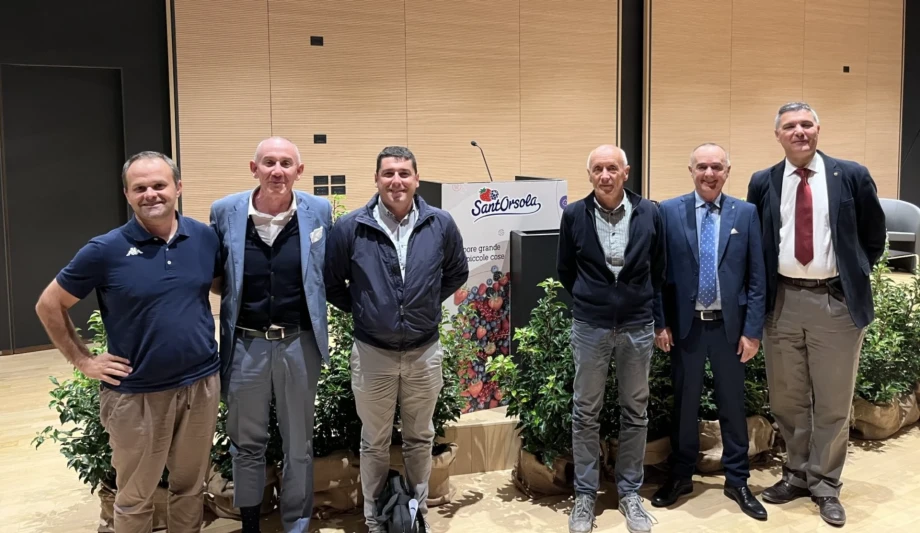The event, organized in collaboration with Gruppo Itas Assicurazioni, featured several speakers, including Professor Dino Zardi, a lecturer at the University of Trento and President of the Italian Association of Atmospheric and Meteorological Sciences. Professor Zardi presented the current and future scenarios of climate change. Other speakers included Antonio Aloisi, the Development Manager for the North-Central and Trentino regions at ITAS; Loris Bonato, the Agricultural Risks Manager at ITAS; and Gabriele Fancello, Agent at ITAS Assicurazioni.
The evening commenced with a welcome address from Sant’Orsola's President, Silvio Bertoldi, followed by a brief intervention by Director Matteo Bortolini. The initial segment highlighted the motivations behind Sant’Orsola's organization of the event, particularly targeting its producers and stakeholders.
Primarily, the event aimed to provide an initial phase of education and information on the current climatic situation, courtesy of Professor Dino Zardi. It addressed how these climatic changes impact and will continue to impact the cultivation of small fruits, preparing producers to effectively intervene in the field.
The increasing frequency and intensity of extreme weather events will increasingly challenge the existing protective structures in the Trentino region. These structures may struggle to withstand the upcoming climatic changes, making it challenging for insurance companies to provide positive responses regarding insurance coverage.
What does the future hold? Professor Dino Zardi's insightful presentation shed light on the overall situation of how the climate is evolving. The worrisome scenario, stemming from the consequences of climate change, goes beyond temperature increases. It encompasses situations such as glacier and polar ice cap melting, changes in the hydrological cycle, desertification, an increased risk of wildfires, and a constant rise in intense events. Despite the negative outlook, there is a glimmer of hope in a radical shift in policies concerning greenhouse gas emissions.
Loris Bonato, ITAS Agricultural Risks Manager, complemented the professor's presentation, affirming that insurance companies are increasingly encountering concerning situations related to damage caused by adverse weather events in recent years.
The challenge today is to establish a sustainable system for agricultural businesses and insurance companies. This involves making farmers' investments sustainable, developing an insurance culture, and actively embracing both active defense measures in the field and passive defense through insurance coverage.
In conclusion, Sant’Orsola's Director shared how it is possible to respond positively to the opening question posed at the beginning of the event. Thanks to the robust growth in the small fruit sector in recent years, collaborating companies are actively studying and developing innovative solutions to help farmers address challenges arising from climate change.
Crucial to success will be the collaboration between insurance companies and producers. Finding a new balance that makes investments sustainable for both farmers and insurance companies is essential. This starts with innovation in the field to minimize residual risk.








